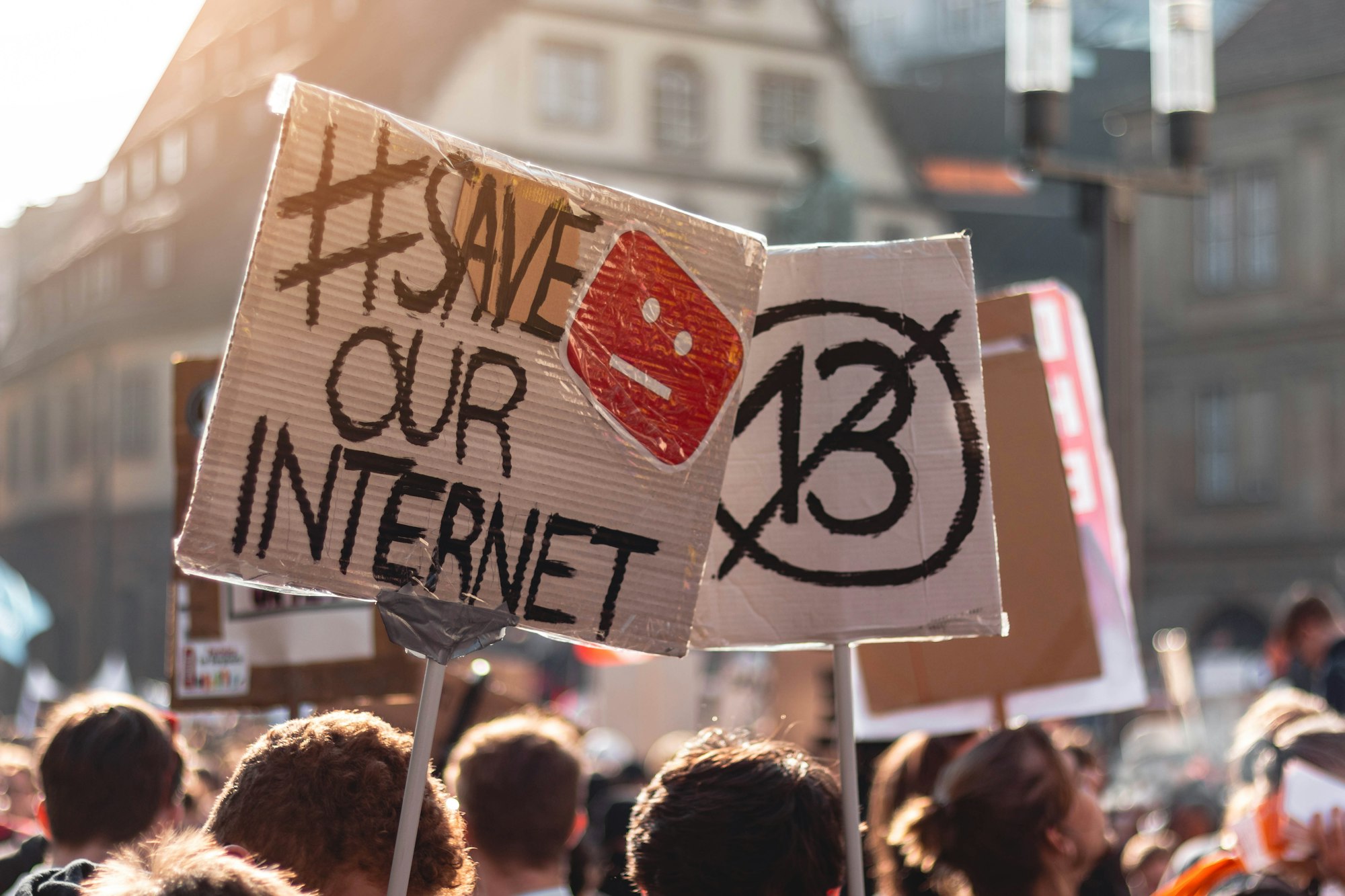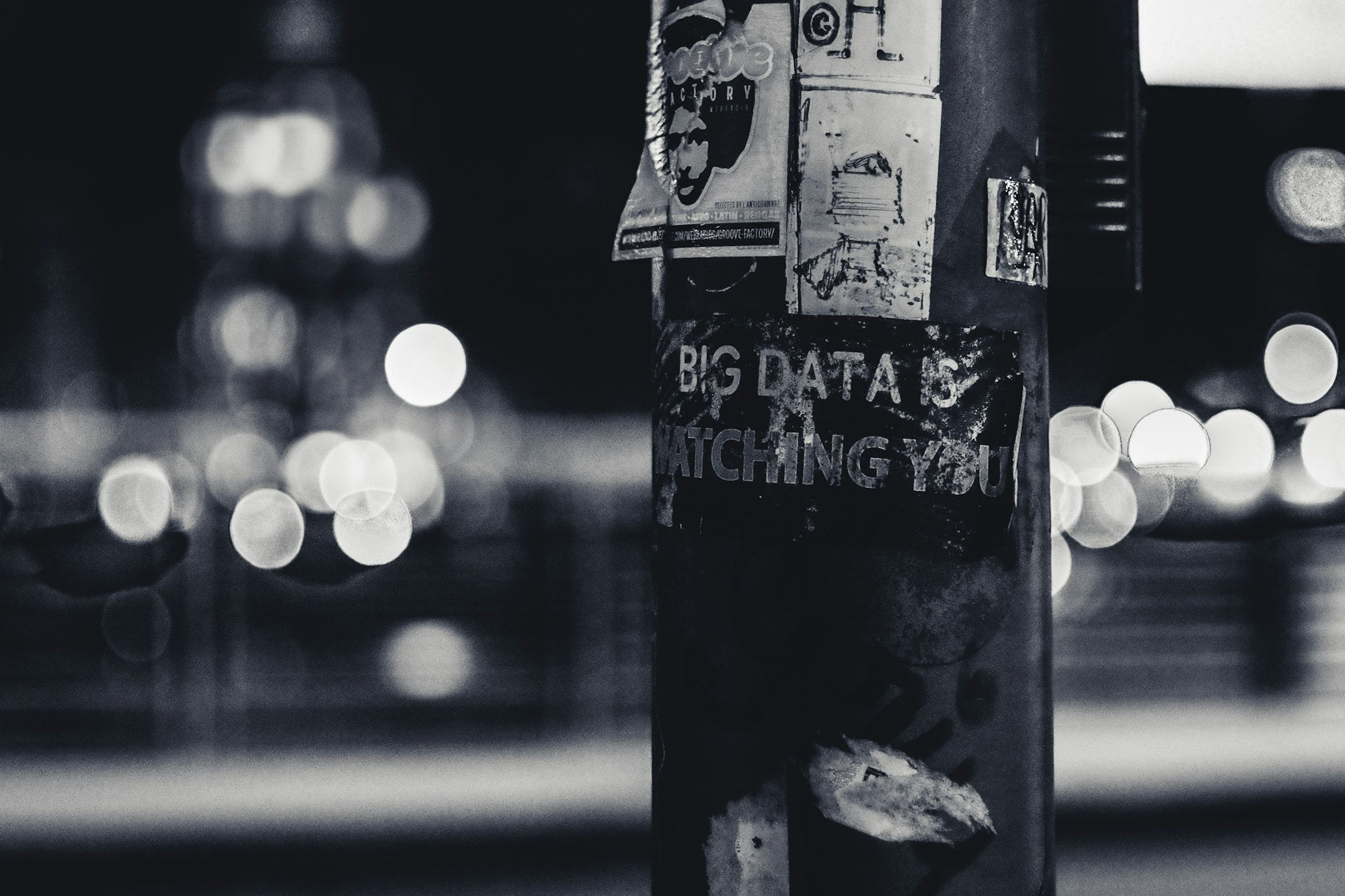For centuries, people have protested against perceived injustices, often facing punishment as the consequence of their participation. While authoritarian regimes tend to suppress such protests, which are potential threats to their power, liberal democracies are generally more tolerant, allowing participants to continue their activities and remain anonymous to both the state and civilian third parties. Over the last decade, however, technological advancements have increasingly eroded this expectation of anonymity, both during protests and on a daily basis.
Today’s ubiquitous mobile devices offer constant connectivity, a seemingly benevolent feature that also enables third-party entities to easily collect vast amounts of data. This technology generates much more data with much greater precision, across a much larger number of users than ever before—all of which make the collected information very powerful. Many firms have created analytical tools for these data, providing precise information about the locations visited by individuals and putting it on sale. Civil society groups in the United States have already taken notice of this trend, hoping to take advantage of this emerging resource to further their political interests; peer organizations around the world will undoubtedly follow suit. While the various concerns about this technology have yet to be addressed, one thing is clear: personal data will play an increasingly important role in global politics moving forward.

From Communication to Data Generation
As all of those who are familiar with landlines know, phones were not always mechanisms for semi-covert, third-party surveillance. Today’s cell phones were originally intended to improve connectivity by making telecommunication more portable. This purpose, however, has shifted significantly over time as masses of people—first in the developed world, and more recently in the global south—began to be able to afford this technology, thereby creating a highly lucrative market and putting pressure on firms to constantly improve their products. As a result, a tool originally meant for voice communication gradually evolved into a tool that could also transmit text and images to people around the world.
The spread of this technology has been truly global, extending well beyond Western industrialized societies. For example, China, the world’s most populous country, is now a leader in rolling out 5G networks, while India, the second-most populous, has more cell phones than toilets, in addition to the world’s least expensive cellular data. Most of sub-Saharan Africa has also adopted cell phones, although only a minority of people use smartphones, which are more concerning from a privacy perspective. While the usage environments are undoubtedly different in each of the many countries experiencing a boom in cellular communication, it is clear that there is an increasing number of people around the world who are making themselves vulnerable to external tracking. This trend coincides with the relatively recent emergence of civilian cellular tracking, making the present moment an important turning point for the role of mobile data in politics. Accordingly, potential regulatory decisions about data sharing are also more influential than ever before.

Civil Society — And Governments
Without regulation, the data from mobile technology will soon have profound effects on political systems around the world. The example of a hypothetical protest in a liberal democracy shows the many uses of this data. First, third parties can track the approximate number of people in attendance, providing valuable information to protest organizers, opposing groups, and interested political parties. Second, they can perform additional data analyses to understand the protesters’ demographics as a group, which is yet another valuable piece of information. Finally, at the individual level, third parties can identify protesters’ destinations following the event, tracking them to their homes and workplaces. This creates more opportunities for political entities to pursue their interests through tactics such as direct-mail campaigning and individually tailored fundraising efforts.
In the hands of mainstream civil society groups, this type of information is not necessarily harmful, particularly considering that personal information has long been printed in telephone and address directories without any major issues. However, people have moved closer to either end of the political spectrum in recent years, making civility in confronting political disagreement all but impossible. This means that political groups are no longer necessarily restricted by social norms of propriety, or even legality, when selecting methods of using and disseminating information. These methods include using social media campaigns to defame individuals, doxxing opponents to discourage continued political participation, and even threats of physical harm. These strategies have effectively weaponized personal information, making it unsafe for individuals to allow their data to be collected in the first place.
Furthermore, the methods that make mobile data attractive to civil society groups are the same ones that make the data a potent tool for governments to suppress the political elements of civil society. For instance, the address data used in direct-mail campaigning is the very same data needed to make an arrest, while event attendance data can easily be used to determine the amount of military or police force needed to end a protest. Unfortunately, this is not just a hypothetical situation: governments around the world are already using these forms of surveillance and have been actively collecting the information necessary to suppress protests and eliminate dissent.
More alarmingly, the use of digital surveillance is not limited to authoritarian regimes such as Russia, China, and Iran. One prominent example is India, a country often lauded for its relatively stable democracy, where the government has developed a cryptic intelligence gathering system to spy on its citizens. Similarly, South Korea—a democratic model of governance upheld by the liberal world order as the ultimate goal for its northern neighbor—collects significant amounts of digital information from cell phones, including financial transactions and contact records, whenever they connect to a cellular tower. The COVID-19 pandemic has already demonstrated the potency of mobile data: South Korea was able to launch an aggressive contact tracing campaign without creating a new dedicated app, showing that the types of data that are normally collected are more than sufficient to pinpoint individual citizens’ whereabouts with great accuracy.

Regulation: A No-Win Situation
On the surface, it may appear that the third parties collecting the information should be at fault for the potentially devastating consequences linked to this surveillance. They, along with technology manufacturers, have created the physical and digital infrastructure needed to track individuals’ every activity. They have also developed the tools used to convert bits of information constantly sent from phones into large datasets filled with rows of coherent, personally identifiable data. Nonetheless, governments actually hold the key to the issue of misused information.
From a historical perspective, this new form of information-gathering is only the latest form of the digital control exercised by governments around the world. The previously preferred method of suppressing dissent was to simply shut down cellular networks or access to the Internet, preventing protesters and other aggrieved parties from communicating with each other during critical times. Countries as diverse as the United States, Russia, Ukraine, and India have used this technique to quell civil unrest, not to mention other parts of the world where such shutdowns simply go unreported. This common experience of digital control indicates that governments, regardless of their regime type, have a major stake in tools that help mitigate the impacts of social unrest and are unlikely to deprive themselves of such powerful technologies.
Moreover, whether or not governments regulate the practice of third-party data collection, it is unlikely that user privacy will change substantively. As previously mentioned, governments benefit from the information gathered, and because it would be impractical to create double standards prohibiting the practice for civilian entities, they are likely to continue allowing the data collection. Alternatively, incumbent data firms are likely to oppose any restrictive regulatory changes in data collection, particularly those that have built their business models around this capacity. Many other businesses would also be opposed: for example, in the United States, a sizable portion of advertising is done by targeting a particular audience or demographic, which requires the collection of individual consumer data. Finally, in addition to the inevitable opposition that a move to ban personal digital surveillance would bring, today’s average smartphone user does not have a clear understanding of the information being collected and transmitted because of the technological and legal complexity involved. This means that the people most affected by regulatory changes, that is, individual users, are unlikely to see any meaningful change in their daily interactions with personal digital devices.
The ignorance of today’s technology users has already proven detrimental to existing regulation. In 2018, the General Data Protection Regulation (GDPR) went into effect across the European Union, providing protection to individuals by requiring data firms to be more transparent about their processes. However, the EU reported in a survey that two years after the GDPR was implemented, only 22 percent of respondents actually read the terms and conditions of digital services, and only 41 percent knew the privacy settings for all of the apps on their smartphones. These low rates of understanding, particularly among a coalition of advanced industrial societies, clearly indicate that change is difficult at the individual level. Furthermore, the US state of California implemented a similar Consumer Privacy Act (CCPA) in January 2020, with analysts and law professors predicting that users are unlikely to take the proactive steps necessary to prevent their data from being gathered and used. Collectively, these relatively recent developments make one thing clear: even when well-intentioned and presumably well-designed regulation is implemented, it does not necessarily mitigate the issues surrounding civilian digital surveillance.

When Democracy Breaks Down
Given the substantial barriers to regulation, it is imperative to confront the alternative of an unregulated world for individual digital surveillance technology. Such a world would not necessarily be an unlivable one; cellular phones have arguably improved the lives of many, and most people who do not already own one are eager to obtain one and experience the convenience of portable telecommunication. However, a livable world does not mean that its conditions are desirable. In particular, an unregulated world means that data can be constantly transmitted to unknown third parties, creating a lingering threat to individual privacy.
Unfortunately for the developed world, much of which is composed of liberal democracies, this threat to privacy can also be a threat to the viability of a democratic regime. A lack of privacy reduces individuals’ sense of security and poses a major barrier to participation in all forms of political activity. The loss of privacy becomes particularly damaging to democracies when personal data is sold to individuals and groups on both sides of the debate, allowing an individual to be hurt twice, whether physically, emotionally, socially, or financially. Without protections and adequate enforcement mechanisms in place, individuals from all walks of life will be discouraged from participating in protests and other forms of public self-expression, stifling not only the possibility of positive change but also threatening the very foundation of democracy.
This digital menace presents the ultimate challenge for democracies around the world. In the near future, they will have to balance the needs of citizens, government, and private enterprise in crafting appropriate responses to the emerging trend of mobile data collection. A daunting challenge in itself, the process promises to be especially difficult in countries such as the United States where corporations are legally considered people under certain circumstances and thus deserving of certain civil protections. Any restrictive regulation on data, even if intended to protect democracy, would threaten the ability of legal persons in the form of corporations to exist freely, thus undermining democratic values. Even if this issue is resolved, a new one will inevitably emerge. When this happens, most users are unlikely to notice because they are unaware of how the technology and the law surrounding it work, making regulation unlikely to become an important issue for the average citizen. The second challenge becomes to increase public awareness of ways to avoid third-party data collection, a task that will surely prove most difficult of all. Unless resolved, ongoing public ignorance about the dangers of surveillance will allow digital interference in politics to continue unhindered and slowly erode the foundations of democracy.




